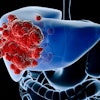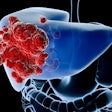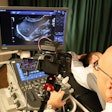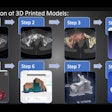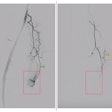
NEW YORK (Reuters Health) - Patients with rectal cancer who have a complete clinical response to chemoradiation can be managed without surgery if they are monitored closely, a new study from the Netherlands suggests.
A "wait-and-see" approach, with strict selection criteria and up-to-date imaging tools, can produce outcomes at least as good as those in patients with a complete pathological response to surgery.
These results from a small study by Dutch researchers, published online November 7 by the Journal of Clinical Oncology, reinforce and extend the findings of a seminal study reported in 2004. In that study -- the first to seriously raise the possibility that surgery could be avoided entirely in some rectal cancer patients after chemoradiation -- the five-year survival rate for the wait-and-see group was 93%, and the disease-free survival was 85%.
In the new study, 192 patients with locally advanced rectal cancer were treated with chemoradiation. The study group comprised the 21 patients (11%) who had a complete clinical response to chemoradiation and agreed to the wait-and-see approach.
The patients were selected very carefully, Dr. Geerard Beets of Maastricht University Medical Center told Reuters Health in an e-mail. "That is why at present, we can offer this option only to around 10% of patients maximally. ... the majority of patients still require a major resection to be cured."
The selection criteria, Dr. Beets explained, included no remaining tumor visible/palpable on clinical examination and endoscopy and no tumor mass or suspicious lymph nodes on MRI.
"We are adding special sequences (diffusion MR) to differentiate between tumor and fibrotic scar," he said. "Although MRI is the most modern technique, and it does help, we find that the endoscopy image is most informative."
The intensive follow-up protocol consisted of digital rectal examination, MRI, endoscopy (with biopsy), computed tomography scan of the chest and abdomen (to check for distant metastasis), and monitoring of carcinoembryogenic antigen levels.
Dr. Beets noted, "Most patients do not object to this."
Twenty of the 21 patients are alive with no recurrence after a mean follow-up of 25 months. The other patient had a small endoluminal local recurrence at 22 months, which was completely resected with transanal endoscopic microsurgery.
The control group consisted of 20 patients who went on to undergo total mesorectal excision and had a pathologic complete response. Five had a suspected complete response to chemoradiation; the other 15 had residual disease before their surgery.
Nine of the 20 required a definitive colostomy and the other 11 had temporary colostomies. Seven had major postoperative complications, including anastomotic leak and intra-abdominal abscess.
Two control patients died, one after one year and the other after five years. None of the surgical patients had a local recurrence.
Bowel function was substantially better in the wait-and-see group.
"With this wait-and-see approach, as with local excision after a good response (another organ-sparing option), we are giving patients the option to have a choice," Dr. Beets said.
He said he's often surprised "that patients are quite willing to accept some uncertainty in oncological outcome (survival, recurrence, etc.) when they get in return a better quality of life. No major surgery, no stoma are more important issues than physicians tend to think."
In an editorial, Drs. Joel E. Tepper and Bert H. O'Neill of the University of North Carolina in Chapel Hill call the Dutch study "well-conducted" and "an excellent start" in "a long process toward changing how we manage local disease in rectal cancer."
Bearing this and the 2004 report in mind, they wrote, "There is now reasonable evidence that a careful clinical, endoscopic, and radiologic evaluation can identify patients who have a good likelihood of local tumor control and who may not need surgery."
By Scott Baltic
Source: http://bit.ly/uW83DW
J Clin Oncol 2011.
Last Updated: 2011-12-30 12:45:25 -0400 (Reuters Health)
Copyright © 2011 Reuters Limited. All rights reserved. Republication or redistribution of Reuters content, including by framing or similar means, is expressly prohibited without the prior written consent of Reuters. Reuters shall not be liable for any errors or delays in the content, or for any actions taken in reliance thereon. Reuters and the Reuters sphere logo are registered trademarks and trademarks of the Reuters group of companies around the world.


